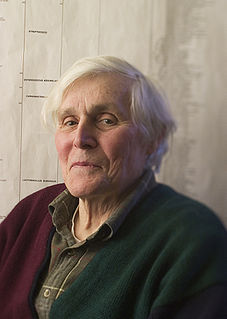A Quote by Jonathan Sacks
Religion is the best antidote to the individualism of the consumer age. The idea that society can do without it flies in the face of history and, now, evolutionary biology.
Related Quotes
Considering that we live in an era of evolutionary everything---evolutionary biology, evolutionary medicine, evolutionary ecology, evolutionary psychology, evolutionary economics, evolutionary computing---it was surprising how rarely people thought in evolutionary terms. It was a human blind spot. We look at the world around us as a snapshot when it was really a movie, constantly changing.
The more evolutionary theory gets called an atheistic theory, the greater the risk that it will lose its place in public school biology courses in the United States. If the theory is thought of in this way, one should not be surprised if a judge at some point decides that teaching evolutionary theory violates the Constitutional principle of neutrality with respect to religion.
If belief in evolution is a requirement to be a real scientist, it’s interesting to consider a quote from Dr. Marc Kirschner, founding chair of the Department of Systems Biology at Harvard Medical School:
“In fact, over the last 100 years, almost all of biology has proceeded independent of evolution, except evolutionary biology itself. Molecular biology, biochemistry, physiology, have not taken evolution into account at all.
Does history warrant the conclusion that religion is necessary to morality - that a natural ethic is too weak to withstand the savagery that lurks under civilization and emerges in our dreams, crimes and wars? ... There is no significant example in history, before our time, of a society successfully maintaining moral life without the aid of religion.
The introduction of the Christian religion into the world has produced an incalculable change in history. There had previously been only a history of nations--there is now a history of mankind; and the idea of an education of human nature as a whole.--an education the work of Jesus Christ Himself--is become like a compass for the historian, the key of history, and the hope of nations.
The second half of the 20th century was a golden age of molecular biology, and it was one of the golden ages of the history of science. Molecular biology was so successful and made such a powerful alliance with the medical scientists that the two together just flourished. And they continue to flourish.





































